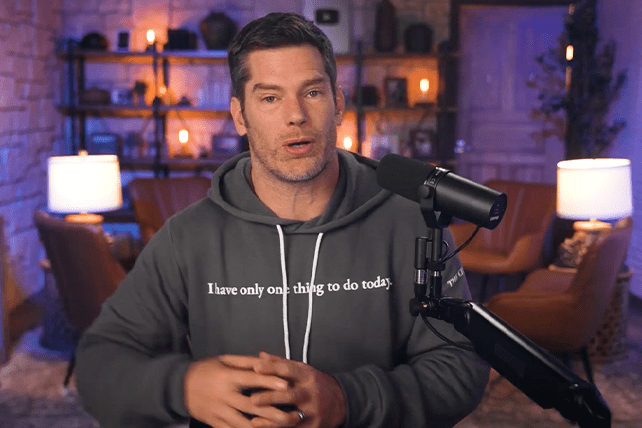Dallas Jenkins, who is the creator, writer, and director of the hit series “The Chosen,” recently explained the writing team’s approach to Season 5, addressing the season’s “slower” pace.
“The Chosen,” which depicts the life and ministry of Jesus Christ through the eyes of his disciples, has continued to grow in popularity and acclaim with each passing season.
Season 5 focused on Jesus’ Last Supper with his disciples.
RELATED: Dallas Jenkins, Other Cast and Crew Overcome with Emotion Filming Jesus’ Crucifixion in ‘The Chosen’
In a lengthy written Facebook post, Jenkins said that the writing team focused on two big “issues” when approaching the season. The first was, “How do we portray the disciples’ wrestling with Jesus outright telling them he’s going to be tortured and crucified? How do we explain and portray that they’re not ridiculously stupid for not understanding when he was so explicitly clear?”
The second issue was, “How do we show, in a fairly short amount of time, how a crowd can go from worshiping him to wanting him dead?”
“Both of those story points, like many other story points we’ve faced in our show, require time and character development,” said Jenkins. While he acknowledged that viewers might anticipate “the big moments, the famous moments, the tear jerking moments,” Jenkins wanted those moments to feel earned.
“We’ve always taken the time, like any good show should, to make sure we EARN those moments and they actually make sense from an artistic and human perspective,” said Jenkins.
Reflecting on the show’s depiction of the disciples grappling with Jesus’ prophecy that he would be killed and rise again, Jenkins added, “You might think, ‘this isn’t how I saw it,’ or ‘it’s always seemed to me that…’ or ‘I don’t believe this is how it would go,’ or ‘the Bible doesn’t mention _____.’”
However, Jenkins said, “that’s not the correct measuring stick for what’s real or plausible. Your perception isn’t necessarily reality, and silence in the Bible doesn’t mean something didn’t happen.”
“Most times the Bible leaves out historical or cultural context because the readers at the time would have understood the very things we ‘add’ to the story,” Jenkins argued. “So because we’re storytellers and creating a TV show, not a history book…we have to show what normal human beings would have done and said in response to Jesus’ words.”

